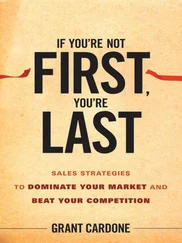Herbert Wells - First and Last Things
Здесь есть возможность читать онлайн «Herbert Wells - First and Last Things» весь текст электронной книги совершенно бесплатно (целиком полную версию без сокращений). В некоторых случаях можно слушать аудио, скачать через торрент в формате fb2 и присутствует краткое содержание. Год выпуска: 2003, Жанр: Философия, на английском языке. Описание произведения, (предисловие) а так же отзывы посетителей доступны на портале библиотеки ЛибКат.
- Название:First and Last Things
- Автор:
- Жанр:
- Год:2003
- ISBN:нет данных
- Рейтинг книги:5 / 5. Голосов: 1
-
Избранное:Добавить в избранное
- Отзывы:
-
Ваша оценка:
- 100
- 1
- 2
- 3
- 4
- 5
First and Last Things: краткое содержание, описание и аннотация
Предлагаем к чтению аннотацию, описание, краткое содержание или предисловие (зависит от того, что написал сам автор книги «First and Last Things»). Если вы не нашли необходимую информацию о книге — напишите в комментариях, мы постараемся отыскать её.
First and Last Things — читать онлайн бесплатно полную книгу (весь текст) целиком
Ниже представлен текст книги, разбитый по страницам. Система сохранения места последней прочитанной страницы, позволяет с удобством читать онлайн бесплатно книгу «First and Last Things», без необходимости каждый раз заново искать на чём Вы остановились. Поставьте закладку, и сможете в любой момент перейти на страницу, на которой закончили чтение.
Интервал:
Закладка:
These responses have on the whole confirmed my main idea that there is a real need, a need that many people, and especially adolescent people, feel very strongly, for some sort of constructive brotherhood of a closer type than mere political association, to co-ordinate and partly guide their loose chaotic efforts to get hold of life—but they have also convinced me that no wide and comprehensive organization can supply that want.
My New Republicans were presented as in many respects harsh and overbearing people, "a sort of outspoken secret society" for the organization of the world. They were not so much an ideal order as the Samurai of the later book, being rather deduced as a possible outcome of certain forces and tendencies in contemporary life (A.D. 1900) than, as literary people say, "created." They were to be drawn from among engineers, doctors, scientific business organizers and the like, and I found that it is to energetic young men of the more responsible classes that this particular ideal appeals. Their organization was quite informal, a common purpose held them together.
Most of the people who have written to me to call themselves New Republicans are I find also Imperialists and Tariff Reformers, and I suppose that among the prominent political figures of to-day the nearest approach to my New Republicans is Lord Milner and the Socialist-Unionists of his group. It is a type harshly constructive, inclined to an unscrupulous pose and slipping readily into a Kiplingesque brutality.
The Samurai on the other hand were more picturesque figures, with a much more elaborated organization.
I may perhaps recapitulate the points about that Order here.
In the "Modern Utopia" the visitor from earth remarks:—
"These Samurai form the real body of the State. All this time that I have spent going to and fro in this planet, it has been growing upon me that this order of men and women, wearing such a uniform as you wear, and with faces strengthened by discipline and touched with devotion, is the Utopian reality; that but for them the whole fabric of these fair appearances would crumble and tarnish, shrink and shrivel, until at last, back I should be amidst the grime and disorders of the life of earth. Tell me about these Samurai, who remind me of Plato's guardians, who look like Knight Templars, who bear a name that recalls the swordsmen of Japan. What are they? Are they an hereditary cast, a specially educated order, an elected class? For, certainly, this world turns upon them as a door upon its hinges."
His informant explains:—
"Practically the whole of the responsible rule of the world is in their hands; all our head teachers and disciplinary heads of colleges, our judges, barristers, employers of labour beyond a certain limit, practising medical men, legislators, must be Samurai, and all the executive committees and so forth, that play so large a part in our affairs, are drawn by lot exclusively from them. The order is not hereditary—we know just enough of biology and the uncertainties of inheritance to know how silly that would be—and it does not require an early consecration or novitiate or ceremonies and initiations of that sort. The Samurai are, in fact, volunteers. Any intelligent adult in a reasonably healthy and efficient state may, at any age after five and twenty, become one of the Samurai and take a hand in the universal control."
"Provided he follows the Rule."
"Precisely—provided he follows the Rule."
"I have heard the phrase, 'voluntary nobility.'"
"That was the idea of our Founders. They made a noble and privileged order—open to the whole world. No one could complain of an unjust exclusion, for the only thing that could exclude them from the order was unwillingness or inability to follow the Rule.
"The Rule aims to exclude the dull and base altogether, to discipline the impulses and emotions, to develop a moral habit and sustain a man in periods of stress, fatigue and temptation, to produce the maximum co-operation of all men of good-intent, and in fact to keep all the Samurai in a state of moral and bodily health and efficiency. It does as much of this as well as it can, but of course, like all general propositions, it does not do it in any case with absolute precision. AT FIRST IN THE MILITANT DAYS, IT WAS A TRIFLE HARD AND UNCOMPROMISING; IT HAD RATHER TOO STRONG AN APPEAL TO THE MORAL PRIG AND THE HARSHLY RIGHTEOUS MAN, but it has undergone, and still undergoes, revision and expansion, and every year it becomes a little better adapted to the need of a general rule of life that all men may try to follow. We have now a whole literature with many very fine things in it, written about the Rule.
"The Rule consists of three parts; there is the list of things that qualify, the list of things that must not be done, and the list of things that must be done. Qualification exacts a little exertion as evidence of good faith and it is designed to weed out the duller dull and many of the base."
He goes on to tell of certain intellectual qualifications and disciplines.
"Next to the intellectual qualification comes the physical, the man must be in sound health, free from certain foul, avoidable and demoralizing diseases, and in good training. We reject men who are fat, or thin, or flabby, or whose nerves are shaky—we refer them back to training. And finally the man or woman must be fully adult."
"Twenty-one? But you said twenty-five!"
"The age has varied. At first it was twenty-five or over; then the minimum became twenty-five for men and twenty-one for women. Now there is a feeling that it ought to be raised. We don't want to take advantage of mere boy and girl emotions—men of my way of thinking, at any rate, don't—we want to get our Samurai with experiences, with settled mature conviction. Our hygiene and regimen are rapidly pushing back old age and death, and keeping men hale and hearty to eighty and more. There's no need to hurry the young. Let them have a chance of wine, love and song; let them feel the bite of full-blooded desire, and know what devils they have to reckon with...
"We forbid a good deal. Many small pleasures do no great harm, but we think it well to forbid them none the less, so that we can weed out the self-indulgent. We think that a constant resistance to little seductions is good for a man's quality. At any rate, it shows that a man is prepared to pay something for his honour and privileges. We prescribe a regimen of food, forbid tobacco, wine, or any alcoholic drink, all narcotic drugs...
"Originally the Samurai were forbidden usury, that is to say, the lending of money at fixed rates of interest. They are still under that interdiction, but since our commercial code practically prevents usury altogether, and our law will not recognize contracts for interest upon private accommodation loans to unprosperous borrowers," (he is speaking of Utopia), "it is now scarcely necessary. The idea of a man growing richer by mere inaction and at the expense of an impoverished debtor is profoundly distasteful to Utopian ideas, and our State insists pretty effectually now upon the participation of the lender in the borrower's risks. This, however, is only one part of a series of limitations of the same character. It is felt that to buy simply in order to sell again brings out many unsocial human qualities; it makes a man seek to enhance profits and falsify values, and so the Samurai are forbidden to buy or sell on their own account or for any employer save the State, unless by some process of manufacture they change the nature of the commodity (a mere change in bulk or packing does not suffice), and they are forbidden salesmanship and all its arts. Nor may the Samurai do personal services, except in the matter of medicine or surgery; they may not be barbers, for example, nor inn waiters nor boot cleaners, men do such services for themselves. Nor may a man under the Rule be any man's servant, pledged to do whatever he is told. He may neither be a servant nor keep one; he must shave and dress and serve himself, carry his own food from the helper's place, redd his sleeping room and leave it clean..."
Читать дальшеИнтервал:
Закладка:
Похожие книги на «First and Last Things»
Представляем Вашему вниманию похожие книги на «First and Last Things» списком для выбора. Мы отобрали схожую по названию и смыслу литературу в надежде предоставить читателям больше вариантов отыскать новые, интересные, ещё непрочитанные произведения.
Обсуждение, отзывы о книге «First and Last Things» и просто собственные мнения читателей. Оставьте ваши комментарии, напишите, что Вы думаете о произведении, его смысле или главных героях. Укажите что конкретно понравилось, а что нет, и почему Вы так считаете.






